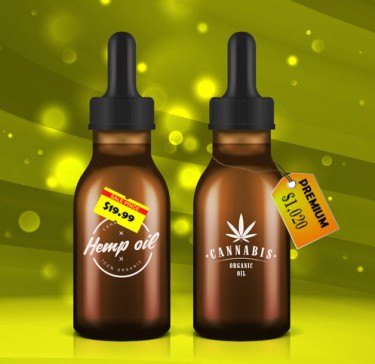
Do you smoke white label weed? What is it and why is California cracking down on white-label marijuana?
The Office of Administrative Law (OAL) has formally approved regulations for all commercial cannabis licensees, California officials said last week. Section 5032 is one of the most controversial Bureau of Cannabis Control (BCC) regulations. The section appears to essentially ban all intellectual property (IP) licensing deals between licensees and non-licensees, making California the only legalized marijuana state in the U.S. to enact such an ordinance.
This new regulation is seen by some as a signal for the end of white labeling in the marijuana industry.
WHAT IS WHITE LABELING?
Rebranding an item – new or old – under another party’s name is known as “white labeling”. Typically, a manufacturer and a brand enter into an IP license agreement for this purpose. White labeling in the cannabis industry allowed a licensed operator to grow, package, and sell cannabis goods that benefited an unlicensed organization, such as a famous brand or foreign company.
White labeling is a common strategy used in many sectors, not just cannabis, to help smaller companies enter the cutthroat market. Many licensed business owners lack the knowledge or resources needed to create novel brand identities or technology. By enhancing and expanding their product and brand offerings to customers, white labeling can offer these licensed operators a way to remain competitive in the marketplace.
On the other hand, many companies and individuals who hold intellectual property (IP) such as formulas, techniques, processes, and brand identities lack the funding to obtain municipal and state permits, or are headquartered in regions that prohibit the use of commercial cannabis purposes. These unlicensed companies may be able to white-label their wares and receive royalties based on sales without actually touching a plant.
THE NEW REGULATIONS
One proposal in particular could have significant implications for an evolving market that’s still finding statewide standards and best practices, according to California’s Bureau of Cannabis Control, which has a draft of permanent regulations floating around for the business.
A clause prohibiting licensed cannabis companies from engaging in commercial marijuana activities through a contract with a person who is not legally registered is embedded in the BCC guidelines.
This rule defines a commercial cannabis activity as follows:
Manufacture of cannabis products to the specifications of a non-standard licensee
Cannabis products packaged and labeled under a non-branded licensee or according to their criteria.
Supply of cannabis products for an unlicensed business.
The white-labeling loophole that has allowed numerous unlicensed, non-cannabis-related businesses into California’s expanding cannabis market would be eliminated by this law, in short. On the surface, the activity appears neither unusual nor illegal, but this expected BCC rule will streamline the cannabis sector and further define who is and isn’t allowed.
According to Lauren Geisser, a transactions attorney at Russ, August & Kabat in Los Angeles, white labeling has become an entry point for numerous companies vying for a place in the California market.
She explains that many companies in California work this way: “Unlicensed companies will work in a co-packing agreement with a licensed manufacturer.” “Because the interstate sale of cannabis is prohibited, even Canadian companies that want to reach the California market can enter into a licensing agreement with a manufacturer. The manufacturer will buy the marijuana and all other ingredients, manufacture and sell the edible or cannabis product. In some cases, they will even package it after licensing their intellectual property rights and ideas for it. In order to bring such products to market without the not registered company ever accesses the facility, they enter into an agreement with a reseller.
The BCC regulation eliminates the entire procedure. As long as both organizations hold valid state licenses, commercial activities involving medical and adult businesses would still be permitted.
The 152-page BCC draft guideline is the state’s latest instance of clarifying how the market should function as the first season of regulated adult marijuana sales comes to a close. On the other hand, the unfolding disaster that the California Growers Association foresaw earlier this year is still in effect. Throughout the year, critics have stressed how difficult and competitive the licensing process is. This gap in the market was undoubtedly seen as an opportunity for outsiders.
PURPOSE OF THE REGULATION
Before the public comment period ended earlier this week, Harris Bricken, a law firm with offices in Los Angeles and San Francisco, submitted a letter to the BCC objecting to the vague categories of potentially prohibited commercial cannabis activities.
According to the law firm’s letter, “intellectual property licensing agreements are used in almost every industry.” By limiting the variety of brands and goods accessible, limiting licensees’ ability to enter into intellectual property licensing agreements with non-licensees is detrimental to both licensees and customers. Additionally, it appears that the overly broad scope of this proposed rule change may not be in the best interest of the Bureau’s objectives.
The letter argues that the effects of Section 5032 could affect the production of cannabis-infused goods more generally. A brand or recipe owner should not need to be accredited to license their intellectual property to a licensed operator for compensation, Harris Bricken’s attorneys write. Just as a landlord should not be required to rent their property to a licensed cannabis operator.
“The state wants all professionals in the industry to have licenses. That’s the goal, says Geisser. “Creative solutions such as joint projects and takeovers and mergers are already in the works. We don’t know how companies will react until the rules are implemented, but preparations are clearly being made for what is about to happen.
FINAL EFFECT
California is now aiming for white labeling to ensure all cannabis companies in the state are registered/licensed with the appropriate bodies and to identify foreign companies attempting to infiltrate the state’s cannabis market.
WHITE LABEL CBD AND CANNABIS, READ MORE…

WHITE LABEL CBD SUPPLIERS SIGN PRICES ONLINE!

Post a comment: